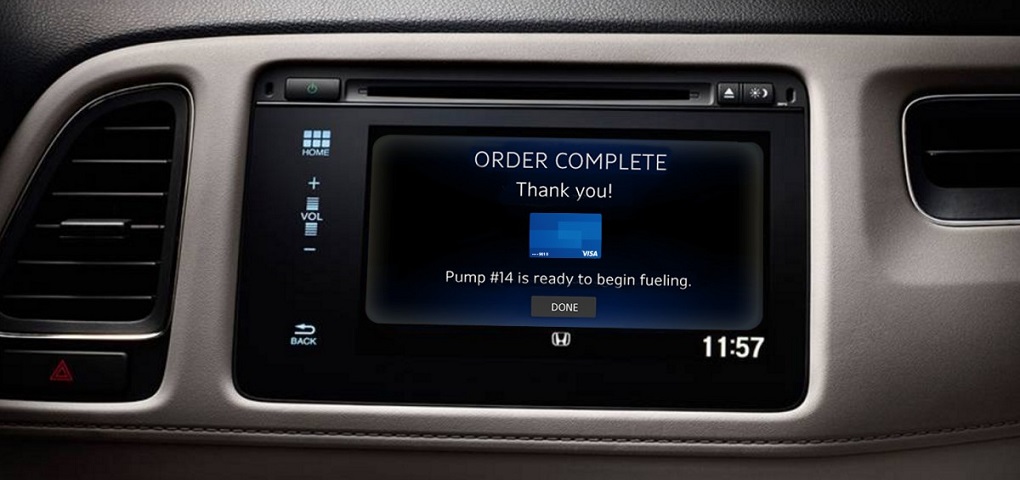
By 2023, transaction payments made through a vehicle will total $1 billion, up from less than $100 million in 2020, according to a Gartner, Inc. press release. Gartner also predicts that by 2025, the automotive retail landscape will be disrupted, with 20% of all new cars sold entirely online.
“Car drivers can currently make in-vehicle payments by using applications such as Alexa, Xevo Market or the Banma platform to purchase fuel, food, or pay for parking,” said Mike Ramsey, research vice president at Gartner. “The types of services available will continue to increase as automakers, merchant brands and services, and software suppliers’ partnerships proliferate.”
In addition to making in-vehicle payments through a cloud platform that connects to the car, car drivers will be able to use a third-party app mirrored on the screen from their phones or through a smart wallet based on blockchain, which lets drivers earn cryptocurrency which can be used for in-car purchases, or through a digital wallet built into the car. The latter could create the capability of the vehicle to not only make payments but accept payments.
“The car would have a unique ID and function almost like a credit card with the ability to make transactions,” said Mr. Ramsey.
Gartner also predicts that by 2025, the automotive retail landscape will be disrupted, with 20% of all new cars sold entirely online. “The COVID-19 pandemic has accelerated the sales of cars online and convinced a growing number of customers to avoid showrooms for future purchases,” said Pedro Pacheco, senior research director at Gartner.
Less than 1% of new cars are currently sold online, but an increasing number of automakers are implementing online platforms to fully transacting the sale of a vehicle from ordering to finance, purchase and home delivery.
As the industry starts pivoting towards an online sales model, automakers and dealers need to overcome a few challenges to provide an effective online sales platform:
The entire online sales model needs to provide high levels of customer convenience and simplicity which means eliminating a lot of bureaucracy and significant time investment to buy a car.
The process needs to offer reassurance – all the steps and information that form the online purchase need to be crystal clear in order to eliminate any possible customer frustration. The process should also include a return policy which gives customers a feeling of security.
“New technologies have taken a long time to proliferate in the automotive industry. As the car becomes more of a digital platform that will change. Car manufacturers are shifting from hardware capabilities to software platforms that are tied to cloud-based ecosystems which will combine functions such as payments and commerce,” said Mr. Pacheco.
Banking 4.0 – „how was the experience for you”
„To be honest I think that Sinaia, your conference, is much better then Davos.”
Many more interesting quotes in the video below: